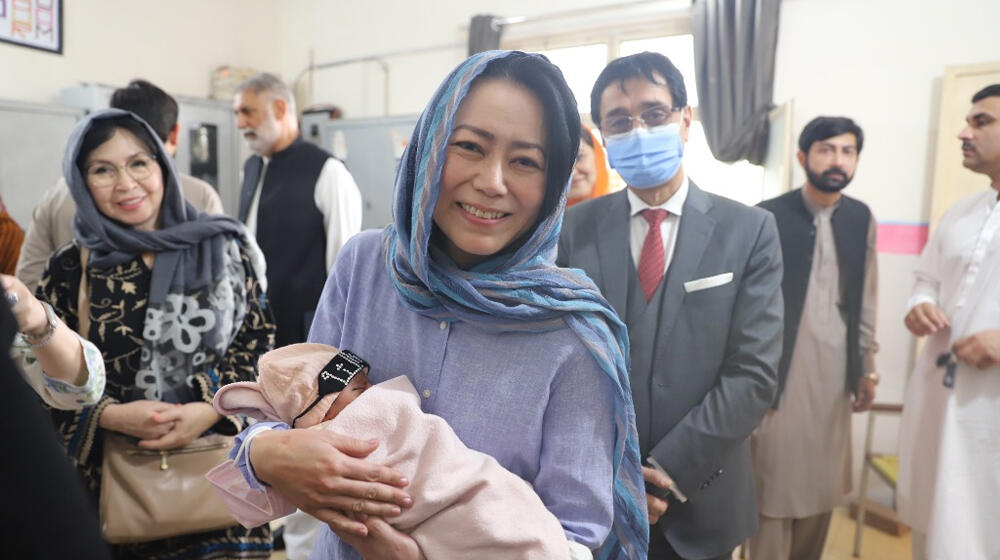Peshawar, April 7, 2022: Ms. Shoko Arakaki, Director of UNFPA’s Humanitarian Office in Geneva is visiting Pakistan to view UNFPA’s humanitarian interventions, especially for Afghan refugees, around reproductive health and responses to gender-based violence (GBV).
As part of her mission, she visited the UNFPA-supported government Basic Health Unit (BHU), Phandu in district Peshawar and interacted with women and girls from Afghan refugee and hosting communities to hear from them on the quality of services provided, the challenges in accessing reproductive health and protection services and solutions they propose. She also met with midwives, psychologists and social mobilizers who are attending deliveries, providing psycho-social support and referrals to GBV survivors and at risk groups, are raising awareness among communities about the available services. Ms. Arakaki appreciated their commitment to serve the women and girls in need in the remote areas.
BHU Phandu, which functions 24/7, is one of the eight government health facilities in KP province, where UNFPA, with support of its partner Sarhad Rural Support Programme (SRSP), is providing comprehensive emergency obstetric and newborn care (CEmONC) services and psychosocial support, multi sectoral referrals and community mobilisation services in refugee hosting communities. The BHU receives around 1,600 out patients every month and one delivery is attended every day on average. Psycologist conducts counselling sessions with 15 to 20 women every month on average.
She also met with representatives of UNFPA partner organizations including Provincial Disaster Management Authority (PDMA), Department of Health (DoH), Sarhad Rural Support Programme (SRSP) and Prime Foundation to discuss the progress on existing interventions and explore ways of scaling up the partnerships around ensuring reproductive health, rights and prevention and response to gender-based violence is integrated into preparedness and response to emergencies in the province.
“We must be accountable for women and girls who suffer most during disasters and emergencies. Rights and health of women and girls are at the heart of UNFPA’s work. We will only be able to achieve Sustainable Development Goals by 2030 if we continue to work in partnerships through innovative and multisectoral approaches. I am certain, that our partnerships in the province will grow stronger owing to our common vision of serving and meeting the health and protection needs of women and girls in refugee and hosting communities.” Said Ms. Arakaki.
UNFPA and Department of Health also signed documents to handover the four fully-equipped and prefabricated Women-Friendly Health Spaces, Labor Room and OPD unit for installation in the remote and rugged region of Tirah Valley in the newly merged districts of KP province to cater the health needs of temporarily displaced women and girls who are now returning to their homes.
********
For more information: Ms. Mariyam Nawaz, Communications Analyst, UNFPA Pakistan | mnawaz@unfpa.org


